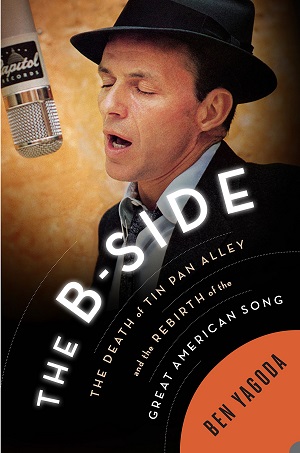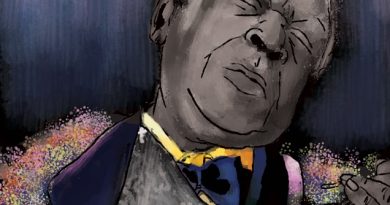Exploring the History of Popular Music
What is the Great American Songbook? It’s a common phrase used in society but what does it really mean? It is a number of the finest compositions in American history, written in the 1930s, ‘40s, and ‘50s, and that are known for standing the test of time. Although most of the songs rarely varied from four sections of eight bars each, the rhythms, harmonies, and sophisticated lyrics created infinite possibilities. They were written by great songwriters such as George Gershwin and Irving Berlin and performed by famous artists like Frank Sinatra and Bing Crosby.
To understand the sophistication of the Great American Songbook, one must understand the importance of jazz. Ben Yagoda states in the Washington Post that the ‘30s and ‘40s were the only time in American music when most popular music was high-quality jazz.

In the book, Yagoda explains the shift in American pop culture from high-quality jazz in the 40s to novelty pop in the early ‘50s. According to the Washington Post, Yagoda asks in his book, “How and why, precisely, did pop music get so bad?” In Yagoda’s interview with NPR’s Robert Siegel, he states that once World War II and the great depression were over, it created a separation between jazz and popular music in America. Instead of wanting sophisticated jazz-based songs, the public wanted easy listening, ballads and novelty songs.
In Yagoda’s book, he states that Mitch Miller, the so called ‘brilliant man’ who created the modern role of record producers is also the villain that turned pop music into jingles in the early ‘50s. But thanks to rock & roll, mainstream music was saved in the mid-to-late ‘50s.
According to the radio program The Steven Maggi Show, Yagoda claims that classic rock has changed the way we listen to music and considers some of it as the American Songbook, Part 2. Yagoda believes that 1955 was a ground zero year for rock & roll. It was the year where Elvis Presley, Chuck Berry, and Little Richard were emerging and attracting young listeners. Towards the ‘60s, The Beatles and The Beach Boys arrived to save pop music.
The Steven Maggi Show states that while some classic songwriters like Ira Gershwin blame rock and roll for the death of the American Songbook, Yagoda believes that while songwriters like Gershwin and the team of John Lennon and Paul McCartney are very different, they have been equally influential. The Beatles started the movement leading to musicians writing their own songs.
Yagoda believes that since current music has become so diversified with a variety of genres, we will never regain the relevance that the original American Songbook had. In the period of the ‘30s and ‘40s, everything was unified but a lot of other musicians’ voices were not heard. Music such as African-American music and country and western were shut out from the national scene.
The good news is that the classic music that our grandparents listened to, like Tony Bennett and Frank Sinatra, will never go away. Lots of aging rockers try to revive these “great America songs” like Paul McCartney, Willie Nelson, and Bob Dylan. Dylan, in fact, has released a CD that features obscure renditions of songs from the “great American song” period. No matter how much modern music changes drastically, the Great American Songbook still has relevance in the modern world and will never go away.




